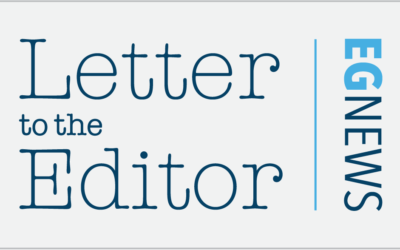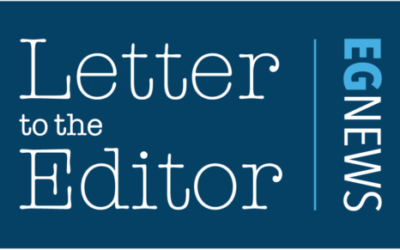Editor’s Note: The Town Council meets Monday, June 7, to discuss the budget and possibly vote on it. Find the agenda, including the virtual link, HERE.
As a member of the School Committee, I am personally glad that we have five town councilors who are smart, dedicated, fair-minded public servants who support the schools. I believe that all my School Committee colleagues share this view.
I’m also glad that we have a town manager who is knowledgeable, hard-working and committed to keeping both municipal and school budgets adequately funded, safeguarded from unforeseen events and in a fiscally strong position for the future.
And, finally, I’m glad that for the first time in many years, the focus of our joint budget meeting on June 1 was how to make fair and risk-managed tradeoff decisions between worthy initiatives competing for finite resources.
So, if we all support the schools, and we all agreed that the school district budget is solid, with no waste or inefficiency, why was the meeting a bit tense?
Fund balance.
A fund balance is the difference between assets and liabilities in the town or school budget. Yet, fund balances are not mere “surpluses”; they are essential components of fiscally sound budgets that are used to cover unforeseen, one-time contingencies that inevitably arise.
Much of the discussion last week focused on the town position that the district does not need a fund balance because: 1) that’s essentially “sitting” on money that might be used to help reduce taxes or shore up municipal programs; 2) the town will always backstop the district if the schools have contingent needs.
Town officials further argued that the District can afford a $600k reduction in its FY 2022 fund balance because of a one-time windfall of ~ $1.5 million from exiting a prior benefits plan.
This seems like a reasonable position – until you consider that it runs counter to both national guidelines for school districts and empirical evidence.
The town is targeting a municipal fund balance of 10 to 17 percent of total expenses, following the most widely used national standard, the Government Finance Officials Association (GFOA), often referred to as a “rainy day” fund (much like a home savings account).
Yet the same GFOA provides guidance to schools to target school fund balances at 15 percent. The GFOA recommends that towns and schools maintain separate fund balances and do not use a single backstop for both, nor commingle funds. Separate legal entities who use tax receipts to provide local services have distinct needs.
Additionally, the GFOA recommends that a portion of fund balances be rolled over into a long-term capital reserve fund, for needs such as buildings and infrastructure.
The school budget operates in a very narrow window each year. Considering people costs, legally mandated “maintenance of effort” for multi-year programs, volatility in federal and state aid, our need to keep schools open and to accommodate almost 3,000 people a day in six facilities, our legal mandate to provide Special Ed services for 26 percent of the children in the district – there is very little in our budget that is discretionary, in this or any year.
In the past 10 years, the district has needed its fund balance to cover unforeseen needs including: cuts to staffing (due to town-directed level funding) that threatened our accreditation, many building repairs, eligibility for federal grants, and in the year of COVID, the health and safety of the community.
Unlike the town, the district is prohibited from running a deficit, borrowing or charging fees, and we cannot simply suspend operations – we are legally (and ethically) obligated to provide a free and appropriate public education for every child who enrolls.
For all these reasons, we cannot lose this rare opportunity to rebuild our fund balance to the recommended standard. If history is any guide, we will need it, especially in a COVID-19 snap-back year.
Just as the town wants to fortify its balance sheet to be on a fiscally sound and sustainable footing, so does the district. We’re both committed to prudent financial management, but we will both need a healthy fund balance to accomplish that.
After we get the FY 2022 budget finalized with our colleagues in the Town Council and town offices, we look forward to working together to develop the first truly collaborative 3-year, long-term budget for both town and schools.
We all want to make EG an even stronger town for decades to come, and to ensure that a great public education for all is a crown jewel of our community.
Can we do this? Absolutely. My Magic Eight Ball says, “Signs Point to Yes.”
Tim Munoz is a member of the East Greenwich School Committee and chair of the panel’s finance subcommittee.




 Subscribe
Subscribe